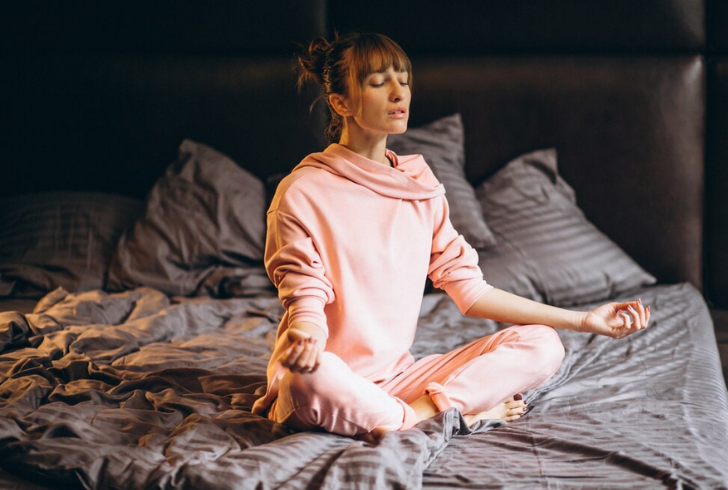Experts Reveal Eye-Opening Truths About Your Sleep Needs
Ever wake up feeling like you wrestled a bear all night? Or perhaps you function just fine on a couple of hours of shut-eye? Sleep, that glorious state of unconsciousness, is as essential as air and water for our well-being. Yet, it’s often the first thing to get sacrificed in our busy lives. But here’s the truth: skimping on sleep has far-reaching consequences that ripple through our physical and mental health.
One of the biggest misconceptions about sleep is that it’s a passive state where we simply shut down. In reality, sleep is a dynamic process orchestrated by our brains.
During sleep, our bodies enter a state of repair and rejuvenation. Muscles mend, memories solidify, and the brain flushes out toxins – all essential for optimal cognitive function and physical health. But sleep isn’t a one-size-fits-all proposition. How much shut-eye you need depends on various factors, like your age, lifestyle, and even your genes.

Freepik | Kids aged 6-13 need 9-11 hours of sleep for healthy growth and active minds.
How Much Sleep Do You Really Need?
Let’s face it, the ideal amount of sleep can feel like a moving target. Here’s a cheat sheet based on age groups, but remember, these are just guidelines:
- Childhood Slumber Party (Ages 6-13):
Growing bodies and curious minds crave a good night’s rest. Aim for 9-11 hours to fuel those growth spurts and blossoming imaginations. - Teenage Dreamers (Ages 14-17):
The struggle is real for teenagers. Their internal clocks naturally shift towards later sleep schedules, but early school mornings often cut sleep short. 8-10 hours is the sweet spot for optimal cognitive function and emotional well-being. - The Adult Balancing Act (Ages 18-64):
Juggling work, family, and social lives often leaves adults sleep-deprived. Aim for 7-9 hours to stay sharp, focused, and energized throughout the day. - Seasoned Sleepers (Ages 65+):
Sleep patterns can naturally shift with age. While some older adults may require less sleep (around 7-8 hours), quality becomes even more crucial.

Freepik | Lack of sleep leads to forgetfulness, poor concentration, and impaired decision-making.
These are just general guidelines. Some people may function perfectly well on a bit less sleep, while others might need an extra hour or two to feel their best. Here’s the key: pay attention to your body’s cues. Do you wake up feeling refreshed and energized, or do you hit the snooze button repeatedly?
Why You Should Prioritize Shut-Eye
Chronic sleep deprivation (think restlessly skimping on sleep) is a recipe for disaster. Here’s how it can wreak havoc on your health:
- Heart Health Havoc: Think of sleep as a time for your heart to take a much-needed vacation.
- Metabolic Mayhem: Not getting enough sleep can disrupt hormones that regulate hunger and satiety, potentially leading to weight gain and metabolic disorders like type 2 diabetes.
- Immunity Inferno: Sleep is essential for a healthy immune system. When you’re sleep-deprived, your body’s ability to fight off infections and recover from injuries gets compromised.
- Brain Drain: Sleep is when your brain consolidates memories and information learned during the day. Skimp on sleep, and you’re setting yourself up for forgetfulness, difficulty concentrating, and impaired decision-making.
Cultivating Quality Sleep

Freepik | Create a calming bedtime routine with a warm bath, reading, or gentle yoga.
The quality of your sleep is just as important as the quantity. Here are some tips to transform your bedroom into a sleep sanctuary:
- Craft a Calming Routine: Establish a relaxing bedtime routine that signals to your body it’s time to wind down. Take a warm bath, read a book, or practice gentle yoga poses.
- Power Down Before Bed: The blue light emitted from electronic devices disrupts sleep patterns. Power down electronics at least an hour before bedtime.
- Craft a Sleep-Conducive Environment: Keep your bedroom cool, dark, and quiet. Invest in blackout curtains, earplugs, and a comfortable mattress.
Remember, sleep is a non-negotiable investment in your health and well-being. By prioritizing good sleep hygiene and creating a sleep-friendly environment, you’ll unlock a world of benefits that encompasses improved mood, sharper focus, a stronger immune system, and a healthier heart. So, ditch the all-nighters and embrace the power of a good night.